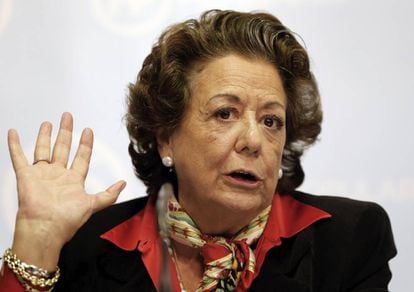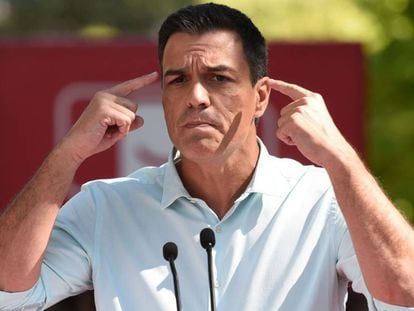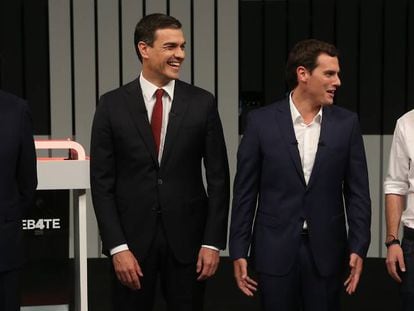Spain’s PP enmeshed by corruption scandals ahead of regional elections
As campaigns kick off, ruling party tries to distance itself from officials facing investigation

The Popular Party’s (PP) ability to wage a successful campaign ahead of regional elections to be held on September 25 in Galicia and the Basque Country is being hampered by the numerous corruption investigations affecting the Spanish conservative group.
Rajoy ignored these and other controversies as he campaigned on his home turf of Galicia on Tuesday
The latest blow came on Tuesday morning, when the Supreme Court moved against Rita Barberá, the former longtime mayor of Valencia, in connection with an investigation into illegal financing and money laundering.
That same day, the caretaker government was forced to defend its earlier decision to nominate a PP official involved in the Panama Papers affair to an executive position at the World Bank. The public outcry forced acting PM Mariano Rajoy to withdraw the nomination of a former industry minister, José Manuel Soria.
Tweeting selfies
But Rajoy ignored these and other controversies as he campaigned on his home turf of Galicia on Tuesday. Asked by reporters about the new twist in the Barberá case, the acting PM declined to comment, and instead spent most of the morning tweeting photographs of himself with supporters in Ourense.

Rajoy was in the northwestern region to drum up support for regional premier Alberto Núñez Feijóo, who is up for re-election. Feijóo, who has already served two terms in office, is widely expected to win by a large margin on September 25.
The outlook is different in the Basque Country, where polls predict that victory will go to the Basque Nationalist Party (PNV). The best the PP can hope for in this region is that the moderate nationalists will turn to them if they need allies in the regional parliament.
At the national level, the string of scandals is making it difficult for Rajoy to find allies to form a government and take Spain out of a nine-month deadlock that includes two general elections. Few opposition leaders are willing to associate themselves with the PP or with Rajoy, whom they depict as the symbol of a deeply corrupt party.
Will Barberá go?
High-ranking PP officials admitted that they wish Barberá, the former Valencian mayor, would give up her senatorial seat. In the Valencia region, a PP stronghold for two decades, voters gave power to a coalition of socialist and regional parties in May 2015, after growing citizen weariness with the PP’s constant corruption cases.
Once she is named an official suspect in the investigation, it will be “very difficult” for Barberá to hang on to her senatorial position, said party sources. Senators, like congressmembers, enjoy immunity from the lower courts.
The only group to have reached a preliminary deal with the PP, the emerging reform party Ciudadanos, forced Rajoy to sign an anti-corruption document pledging to remove any official under court investigation for corruption from public office.
A recent voter survey for EL PAÍS found that if third elections are finally held in Spain, turnout will fall to historical lows. This benefits the PP, which would perform even better than it did on December 20 and June 26.
English version by Susana Urra.












































